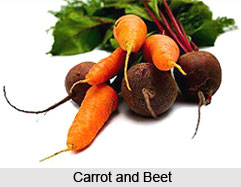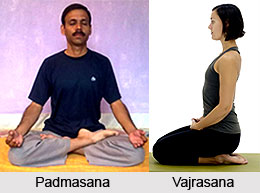 In naturopathy, the natural remedy for High Blood Cholesterol can be obtained by keeping away from foods rich in cholesterol and saturated fats. Diet is the most important factor in the cure. Cholesterol rich foods are bacon, beef, eggs, meats, cheese, butter, whole milk, virtually all foods of animal origin as well as two vegetable oils, namely coconut and palm, are high in saturated fats and these should be replaced by polyunsaturated fats such as corn, safflower, soyabeans and sesame oils which tend to lower the level of low density lipoproteins (LDL). There are mono saturated fats such as olive and peanut oils which have more or less neutral effect on the LDL level.
In naturopathy, the natural remedy for High Blood Cholesterol can be obtained by keeping away from foods rich in cholesterol and saturated fats. Diet is the most important factor in the cure. Cholesterol rich foods are bacon, beef, eggs, meats, cheese, butter, whole milk, virtually all foods of animal origin as well as two vegetable oils, namely coconut and palm, are high in saturated fats and these should be replaced by polyunsaturated fats such as corn, safflower, soyabeans and sesame oils which tend to lower the level of low density lipoproteins (LDL). There are mono saturated fats such as olive and peanut oils which have more or less neutral effect on the LDL level.
The quantity of fiber in the diet also influences the cholesterol levels and LDL cholesterol can be lowered by taking diets rich in fibers. The most important sources of dietary fiber are unprocessed wheat bran, whole cereals such as barley, wheat, rice, rye; legumes such as carrot, beet, potato, and turnips; fruits like mango and guava and green vegetables such as cabbage, lady`s finger, lettuce and celery. Oat bran is in particular advantageous in lowering LDL cholesterol. Lecithin, also a fatty food substance and the most abundant of the phospholipids, is extremely valuable in case of increase in cholesterol level. It has the ability to break up cholesterol into small particles which can be effortlessly handled by the system. With adequate intake of lecithin, cholesterol cannot build up against the walls of the arteries and veins. It also increases the production of bile acids made from cholesterol, thus reducing its amount in the blood.
 Vegetable oils, whole grain cereals, egg yolk, soyabeans and unpasteurised milk are rich sources of lecithin. The cells of the body are also competent of synthesising it as needed, if several of the B vitamins are present. Diets high in vitamin B6, cholin and inositol supplied by wheat germ, yeast, or B vitamins extracted from bran have been predominantly successful in reducing blood cholesterol. Sometimes vitamin E elevates blood lecithin and reduces cholesterol presumably by preventing the necessary fatty acids from being destroyed by oxygen. Persons with high blood cholesterol level should drink at least eight to ten glasses of water every day as regular drinking of water stimulates the excretory activity of the skin and kidneys. This in turn facilitates elimination of excessive cholesterol from the system. Drinking of coriander (dhania) water on a regular basis also helps lower blood cholesterol as it is a good diuretic and stimulates the kidneys. It is prepared by boiling dry seeds of coriander and straining the decoction after cooling.
Vegetable oils, whole grain cereals, egg yolk, soyabeans and unpasteurised milk are rich sources of lecithin. The cells of the body are also competent of synthesising it as needed, if several of the B vitamins are present. Diets high in vitamin B6, cholin and inositol supplied by wheat germ, yeast, or B vitamins extracted from bran have been predominantly successful in reducing blood cholesterol. Sometimes vitamin E elevates blood lecithin and reduces cholesterol presumably by preventing the necessary fatty acids from being destroyed by oxygen. Persons with high blood cholesterol level should drink at least eight to ten glasses of water every day as regular drinking of water stimulates the excretory activity of the skin and kidneys. This in turn facilitates elimination of excessive cholesterol from the system. Drinking of coriander (dhania) water on a regular basis also helps lower blood cholesterol as it is a good diuretic and stimulates the kidneys. It is prepared by boiling dry seeds of coriander and straining the decoction after cooling.
Regular exercise also plays a significant part in lowering LDL cholesterol and in raising the level of protective high density lipoproteins (HDL). It also promotes circulation and helps maintain the blood flow to every part of the body. Jogging or brisk walking, swimming, bicycling and playing badminton are excellent forms of exercise. Yoga asanas are greatly favourable as they help increase perspiratory activity and stimulate sebaceous glands to effectively secrete accumulated or excess cholesterol from the muscular tissue. Asanas like ardha matsyaendrasana, salabhasana, padmasana and vajrasana are useful in lowering blood cholesterol by increasing systemic activity. Hydrotherapy can be effectively employed in reducing surplus cholesterol. Cold hip baths for ten minutes taken twice every day have proved beneficial. Steam baths are also helpful apart from patients suffering from hypertension and other circulatory disorders. Mud packs, applied over the abdomen improve digestion and assimilation. They improve the functioning of the liver and other digestive organs and activate kidneys and the intestines to encourage better excretion.




















